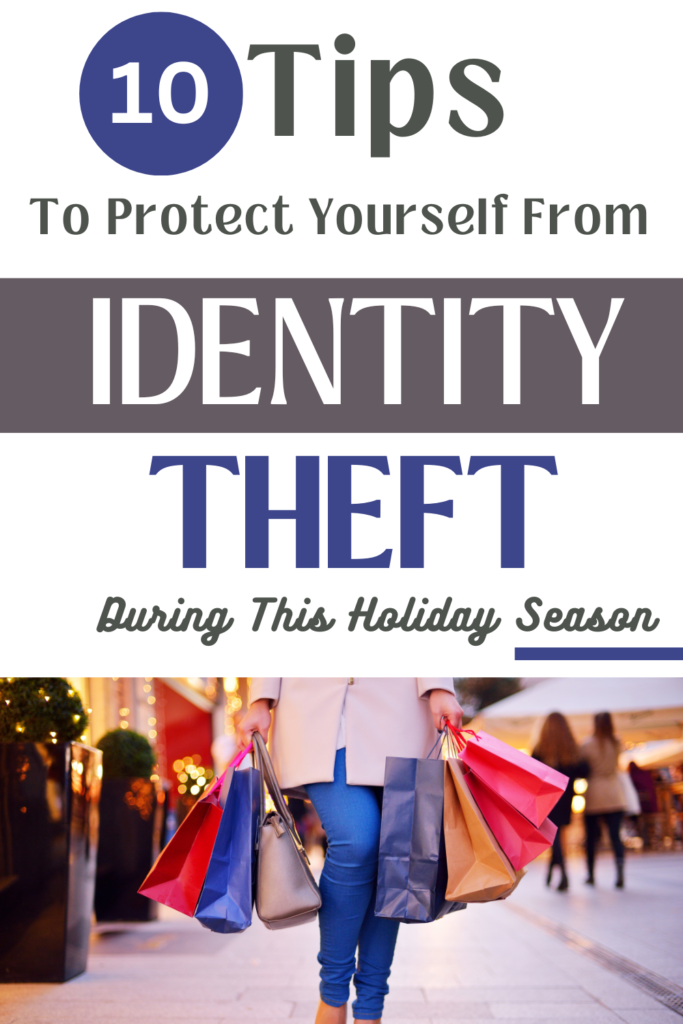 The holiday season is a time for joy, celebration, and gift-giving. However, it’s also a prime time for identity thieves to strike. With the increase in online shopping and transactions during this festive period, it’s crucial to be vigilant and take steps to protect your personal information. In this blog post, we’ll explore 10 holiday shopping rules to safeguard against identity theft, ensuring that your celebrations remain worry-free.
The holiday season is a time for joy, celebration, and gift-giving. However, it’s also a prime time for identity thieves to strike. With the increase in online shopping and transactions during this festive period, it’s crucial to be vigilant and take steps to protect your personal information. In this blog post, we’ll explore 10 holiday shopping rules to safeguard against identity theft, ensuring that your celebrations remain worry-free.
Update Your Passwords Regularly
One of the simplest yet most effective ways to protect your online identity is to update your passwords regularly. Choose strong, unique passwords for each of your accounts, and avoid using easily guessable information like birthdays or names. Consider using a combination of letters, numbers, and special characters. Changing your passwords periodically adds an extra layer of security, reducing the risk of unauthorized access to your accounts.
Enable Two-Factor Authentication
Two-factor authentication (2FA) provides an additional layer of security by requiring you to verify your identity through a secondary method, such as a text message or authentication app. Most online retailers and banking institutions offer 2FA as an option. By enabling this feature, you add an extra barrier that makes it significantly harder for identity thieves to gain access to your accounts, even if they manage to obtain your password.
Shop Only on Secure Websites
When shopping online, it’s crucial to ensure that the websites you use are secure. Look for “https://” in the URL, indicating that the website encrypts your data during transmission. Avoid making purchases on websites that only use “http://” as they lack the necessary security measures. Additionally, reputable online retailers often display trust seals or badges on their websites, signifying that they meet certain security standards. Stick to well-known and established online stores to minimize the risk of falling victim to identity theft.
Be Wary of Phishing Scams
Phishing scams are prevalent during the holiday season, as cybercriminals capitalize on the increased online activity. Be cautious of unsolicited emails, messages, or pop-ups that prompt you to click on links or provide personal information. Legitimate businesses will never ask for sensitive information through email or messages. If in doubt, contact the company directly using information from their official website or customer service line. Avoid clicking on suspicious links, and use antivirus software to protect against malicious software.
Monitor Your Accounts Regularly (10 Holiday Shopping Rules to Safeguard Against Identity Theft)
Regularly monitoring your bank and credit card accounts is essential for detecting any unauthorized or suspicious activity promptly. Set up account alerts to receive notifications for large transactions, withdrawals, or changes to your account information. If you notice any discrepancies, contact your financial institution immediately. Early detection can help mitigate potential damage and minimize the impact of identity theft.
Use a Dedicated Credit Card for Online Shopping
Consider using a dedicated credit card for your online holiday shopping. This card should have a lower credit limit than your primary card, reducing the potential financial fallout if it falls into the wrong hands. Many credit cards also offer additional security features, such as fraud protection and the ability to dispute unauthorized charges. Check with your credit card provider to understand the security features available and how they can help safeguard your holiday purchases.
Keep Software and Security Systems Updated
Ensure that your computer, smartphone, and other devices have the latest security updates and patches installed. Cybersecurity threats are constantly evolving, and updating your software helps protect against vulnerabilities that identity thieves may exploit. Install reliable antivirus and anti-malware software to provide an extra layer of defense against malicious attacks. Regularly check for updates to your browser, operating system, and security software to stay ahead of potential threats.
Avoid Public Wi-Fi for Sensitive Transactions
Public Wi-Fi networks are often less secure than private ones, making them susceptible to hacking and data interception. Avoid conducting sensitive transactions, such as online shopping or banking, while connected to public Wi-Fi. If you need to make a purchase or access sensitive information, use a secure and private network, such as your home Wi-Fi or a trusted virtual private network (VPN). This precaution helps protect your data from potential eavesdropping by cybercriminals on public networks.
Shred Sensitive Documents
Identity thieves can exploit physical documents containing personal information, especially during the holiday season when paperwork may accumulate. Shred any documents containing sensitive details, such as credit card statements, bank statements, and invoices, before disposing of them. This includes any pre-approved credit card offers that could be used by identity thieves to open accounts in your name. A simple shredder can be an effective tool in safeguarding against both online and offline identity theft.
Educate Yourself and Stay Informed
Knowledge is a powerful tool in the fight against identity theft. Stay informed about the latest scams, techniques, and security practices to protect yourself during the holiday season and beyond. Online resources, such as cybersecurity blogs, government websites, and reputable news outlets, provide valuable information about emerging threats and best practices for staying secure online. By educating yourself, you become better equipped to recognize potential risks and take proactive measures to safeguard your identity.
Related Post: Protecting Your Child from Identity Theft

Conclusion
As you embark on your holiday shopping journey, it’s crucial to prioritize the security of your personal information. By following these 10 holiday shopping rules, you can significantly reduce the risk of falling victim to identity theft. From updating passwords and enabling two-factor authentication to staying vigilant against phishing scams and monitoring your accounts, each step plays a vital role in ensuring a safe and secure holiday season. By adopting these practices, you can shop with confidence, knowing that you’ve taken proactive measures to safeguard your identity in the digital age.
What other rules would you add to the list to safeguard against identity theft? Let us know in the comments below.
Cheers!






